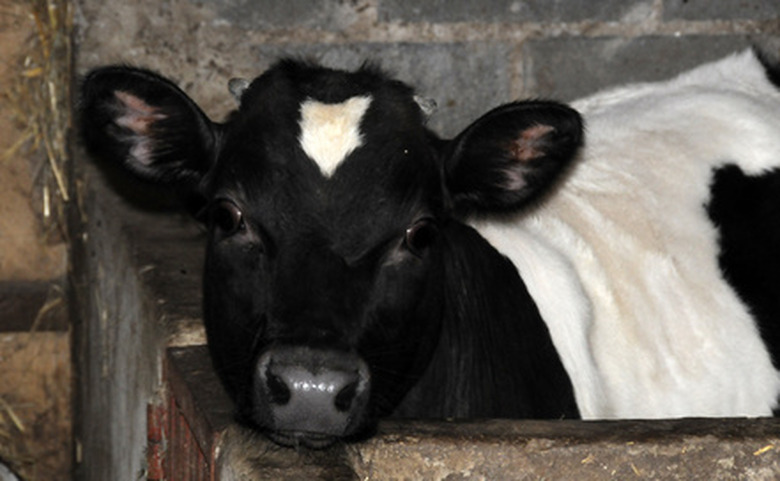PH Level Of Cow Manure
Long before the advent of chemical fertilizers, farmers and gardeners relied heavily on manures to replenish nutrients absorbed by crops and plants. Cow manure in particular was prized for its ability to bring extreme pH levels in the soil back to neutral, as well as enrich the soil.
Factors
The feed of the cows plays an important part in determining the pH of the manure. Excessive calcium and other alkaline materials in the bedrock under the pasture can result in a high pH, while high concentrations of urine may lower the pH of the final product. Usually, cow manure with an extreme pH has been amended with lime or acidifiers by the manufacturer to improve the final product.
Average pH
Cattle manure tends toward a neutral pH. Studies by Penn State showed dairy manure at 7.0, while manure mixtures from the University of Ngaoundere ranged from approximately 5.9 to 6.9. The tendency toward neutral has to do with the pH safeguards within the cow's body that prevent things in the digestive tract from becoming too acid or alkaline and damaging its guts.
- Long before the advent of chemical fertilizers, farmers and gardeners relied heavily on manures to replenish nutrients absorbed by crops and plants.
- Excessive calcium and other alkaline materials in the bedrock under the pasture can result in a high pH, while high concentrations of urine may lower the pH of the final product.
Effects
When adjusting the pH of the garden, it's important to do so slowly. Heavy applications of lime or acids to swing the pH drastically can harm or even kill existing plants. Instead, correcting with a pH neutral amendment like cow manure first gives existing plants time to adjust. Then, when the soil has reached neutral, further adjustments toward acidity or alkalinity can be made without shocking the plants.
Other Benefits
Manure has long been valued for adding nutrients, microbes and soil structure along with neutralizing soil pH. Cattle manure in particular often still has much of the nutrients that the cow ingested in the manure, despite the fact that it's been through four stomachs. In some cases, the grass, feed and nutrients are barely transformed, and just decompose easier for having been through the digestive system.
- When adjusting the pH of the garden, it's important to do so slowly.
- Then, when the soil has reached neutral, further adjustments toward acidity or alkalinity can be made without shocking the plants.
Considerations
Composted manure and fresh manure have different effects in the garden, including their effect on pH. Fresh manure alters surrounding soil as it decomposes, rapidly changing nitrogen content as some is lost to the atmosphere and more is lost to microbe activity and surrounding plants. While composted manure has lower nitrogen content, it has a higher concentration of potassium and phosphorus and a more stable pH.
References
- Penn State Cooperative Extension: Biological Manipulation of Manure: Getting What You Want from Animal Manure
- University of Ngaoundere: Evaluation of the Physico-Chemical Properties of Cattle and Kitchen Manures Derived Composts...
- Virginia Cooperative Extension: Nutrition and Feeding of the Cow-Calf Herd: Digestive System of the Cow
